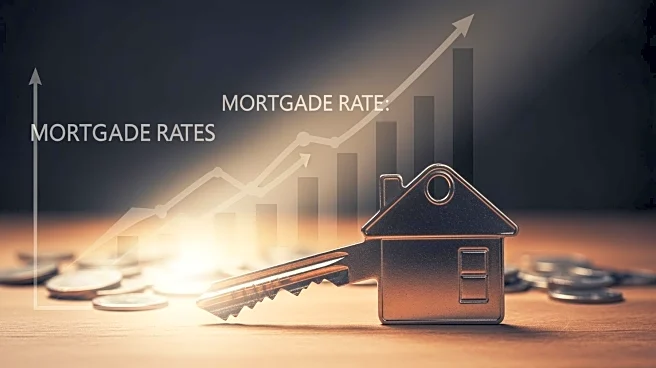What's Happening?
In 2025, the United States experienced a decline in homeownership for the first time in nearly a decade. According to Redfin, the number of homeowners decreased to 86.19 million, down from 86.28 million in 2024. This decline is attributed to a combination
of high inflation, increased interest rates, and soaring real estate prices, which have made homeownership less accessible. Chen Zhao, Redfin's head of economics research, explained that the trend of low mortgage rates since the 2008 financial crisis had previously supported home buying. However, the situation changed in 2022 when inflation and interest rates began to rise, leading to a significant increase in mortgage rates. As a result, many potential buyers are now priced out of the housing market.
Why It's Important?
The decline in homeownership has significant implications for the U.S. economy and society. High mortgage rates and real estate prices are making it difficult for many Americans to afford homes, potentially widening the gap between homeowners and renters. This shift could impact economic stability, as homeownership is often associated with wealth accumulation and financial security. Additionally, the trend of young Americans delaying marriage and family formation may further contribute to the decrease in homeownership, as these life events are traditionally linked to home buying. The increase in rental households suggests a shift in housing preferences, which could influence future housing policies and market dynamics.
What's Next?
As mortgage rates remain high, it is likely that the trend of declining homeownership will continue unless there is a significant change in economic conditions. Policymakers and industry stakeholders may need to explore solutions to make homeownership more accessible, such as affordable housing initiatives or adjustments to interest rates. The real estate market may also see shifts in demand, with potential increases in rental property investments. Monitoring these developments will be crucial for understanding the long-term impacts on the housing market and broader economic landscape.
Beyond the Headlines
The decline in homeownership raises questions about the long-term cultural and economic shifts in the U.S. The traditional view of homeownership as a cornerstone of the American Dream may be evolving, with more individuals opting for the flexibility of renting. This change could influence urban planning, as cities may need to adapt to a growing renter population. Additionally, the financial burden of high housing costs could exacerbate economic inequality, prompting discussions on housing affordability and social equity.















